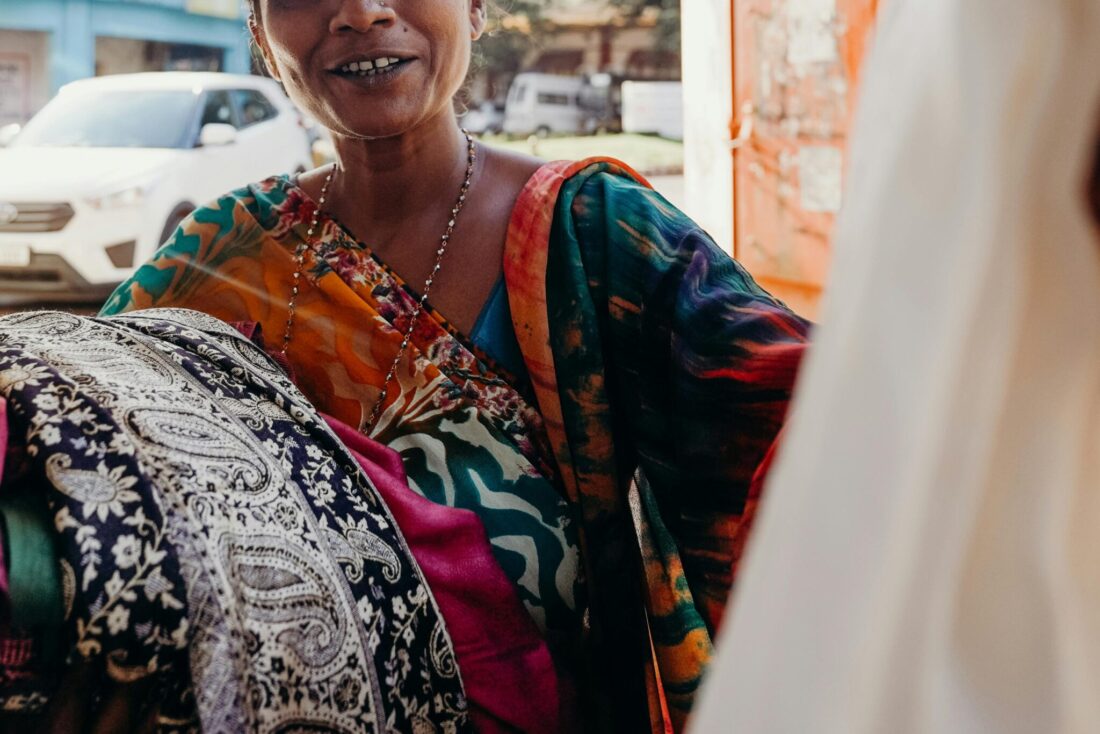A coffee cup at the back of the cupboard, a pen gathering dust in a junk drawer, a tote bag languishing on a closet shelf. While meant to celebrate a milestone or anniversary, these corporate gifts are often lackluster items that are rarely given a second thought, if not dumped in the trash within days. This leaves the recipient feeling empty and the environment further taxed—and it’s a missed opportunity for businesses to further strengthen connections too.
But what if you could give or receive a gift so meaningful that even years later, you thought of it with a smile? A gift that benefits the environment and supports the artisan who made it? That’s where Priya Ravindra Kalyanimath’s Australia-based startup Punar comes in. The company is transforming the corporate giving industry by creating sustainable gifts and homewares handcrafted by female artisans in India.
In her previous corporate life, founder and CEO Kalyanimath advocated for more female involvement in technology projects and also served as an elected board director. Now, she leverages her passion, corporate governance experience and the power of media to bring Punar into the hearts and homes of individuals, brands and businesses looking to give thoughtfully and help drive systemic change.
“Not only are you investing in the makers by sourcing from an ethical and sustainable brand, but you are also giving that extended experience for your loved ones,” Kalyanimath says.
From ideation to launch
Even as a child in India, the imbalance of women being paid less than men troubled Kalyanimath. But it was the often mindless consumption she observed during the pandemic that gave her the push she needed to create her company.
While her networks in India included entrepreneurs who were trying to eliminate textile waste, she saw a gap in companies who were bringing sustainability and equality together to weave a new narrative. Over the next two years, she built Punar to fill that gap.
“Developing fabrics, failing fast and creating long-lasting, high-quality fabrics took time because we didn’t want to create yet another product that was ending up in a landfill,” she says.
Punar has upskilled 12 women artisans since 2021, teaching them how to create zero-emission fabrics, paying them fair wages and giving them safe and supportive jobs in an industry that Kalyanimath says is notorious for mistreating workers. And by using recycled yarn to create the fabrics, as well as other recycled and upcycled materials, Punar gives textile waste new life.
Kalyanimath also wants to provide consumers with the option to give more sustainably. “If you’ve got 10 things to buy this quarter, can you put on an investigative hat and look up the label, really understand the story, the purpose, and then buy maybe one or two [sustainable] products?” she asks. “Can you invest in an ethical, independent brand, women founders [and] sustainable fashion?”
Since its founding, Punar has reported diverting over 450 pounds of clothing from ending up in a landfill and saving nearly 200,000 gallons of water. The company also creates an impact card that accompanies each purchased gift so consumers can see the face of the artisan who made their product and where their money is going.
Punar’s dedication to mindful fashion
While fast fashion may be considered reasonably priced, Kalyanimath says that issues with longevity can occur. “How long is it actually going to last? A couple of years?” she asks. “Whereas if you pick that higher price point but [it’s] ethical and sustainable, it is going to last five to 10 times longer.”
She doesn’t believe in guilting people about their lack of a sustainable lifestyle. Instead, she wants to show them the power they have as a conscious consumer.
“What can you do to choose right, to clean up this planet, to pay people the right amount of money?” Kalyanimath adds. “We all know when we cut corners or when we are cutting costs, somebody somewhere is paying the price. Either an environmental price or the consumers who are using toxic materials and fabrics, or the Earth is being impacted by this waste being dumped on [it].”
Media acts as a unifier and a storyteller
Punar doesn’t advertise its products. Instead, it relies on the power of media to connect humans and communities all around the world. In addition to pitching her company, Kalyanimath also works with media as a thought leader to provide ongoing awareness and education around ethical fashion and sustainability.
After reading an article that featured Kalyanimath as a contributor, a man living in Australia’s countryside converted to a customer. It was his first time hearing of Punar.
“That’s the power of media,” Kalyanimath says.
She adds that women don’t raise their hands for these opportunities as much as men do. “This is how women are raised: to be polite, to just quietly do the work and keep things ticking along rather than standing up and asking for that recognition,” she says. “Yes, it is changing, but at a slow pace!”
For Kalyanimath, media placements provide Punar with multiple benefits: additional credibility, an introduction to new customers and another avenue that will build trust and create conscious consumerism. “When you build that trust and heart-based connections, I can assure you revenue will come,” she says.
She also considers the media to be a powerful ally for storytelling, one that offers a win-win for everyone involved. “I think we all have the responsibility of lifting the frequency… given all the things that are [going on],” she says.
This year, Punar will launch a new collection and exclusively use a portion of the profits for artisan well-being and self-care activities. Kalyanimath also wants to build on Punar’s current success to create sustainable hubs outside India, as well as safe jobs and financial freedom for 10,000 women around the globe. She will continue partnering with media to further spread good news stories that allow us to come together as collective humanity.
“This is where… media plays such a powerful tool in terms of communication,” she says. “It doesn’t matter what corner of the world you’re sitting in. It’s the power of media, technology and communication which unites us as humans.”
This article originally appeared in the September/October 2025 issue of SUCCESS® magazine.
Photo by cottonbro studio/Pexels.com








